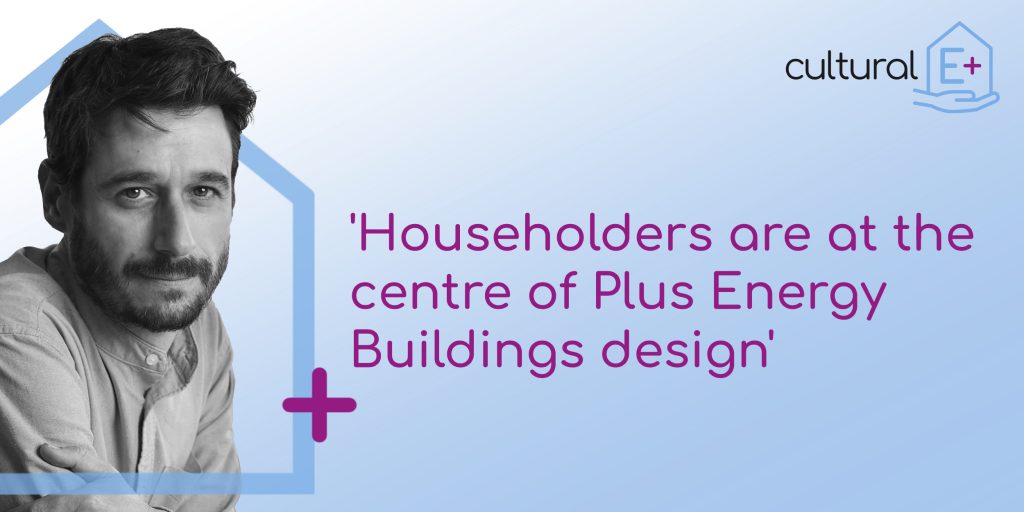Iván Luque is an engineer and research fellow at Royal Melbourne Institute of Technology – RMIT Europe, one of the 17 consortium partners of the Cultural-E project. After 10 years of work experience in project management for non-profit organisations, public administrations and private companies in both Europe and Africa, Luque is now focusing on the social sciences sphere of building engineering. He is particular interested in urban sustainability and affordable housing. Luque’s aspiration for Cultural-E is to build knowledge on how cultural and material arrangements work at the individual building level, as a precursor to plus energy settlements.
Luque acknowledges that building characteristics and their integrated energy systems are not the only factors that determine energy use in buildings. ‘The construction sector tends to design buildings based on perceptions of an ideal energy consumer, but the reality of energy use in households is different,’ he states.
‘My research looks at new ways of understanding the nature of energy usage and performance in buildings, which includes the impact of cultural and climate differences. (…) For instance, average data on energy consumption in households in Finland and Italy, two European countries with opposite climates, show that in southern European households the value triples in cooking and laundry practice. This could be linked to the use of common laundry facilities in northern Europe and cultural behaviours such as traditional cooking in Mediterranean countries,’ Luque elaborates.
CULTURAL-E will enable the development of technologies and solutions tailored to specific contexts and energy demands in the design of PEB. Luque is certain that the project sets the way for the development of future positive energy districts. ‘Based on the instance that energy supply will be critical in future metropolis, the Positive Energy District (PED) is set to become an overriding urban principle for human settlements,’ he presumes.
‘I believe that structured social theories are needed for a successful PEB user-centric design. Mapping the energy demands within the European stock will allow us to design sustainable city technologies and to transform the whole urban ecosystem.’
Story: Patricia Lora
Original source: https://www.rmit.edu.au/news/all-news/2019/dec/householders-at-the-centre-of-plus-energy-buildings-design


